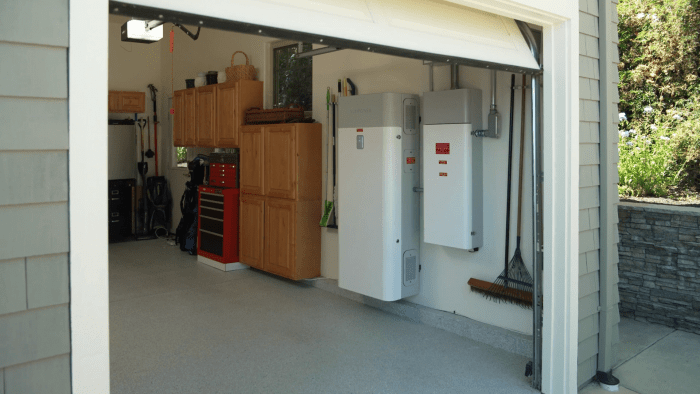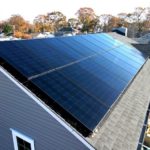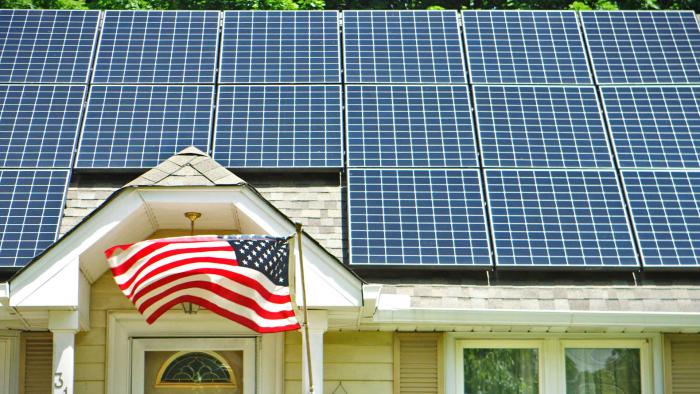Four Things You Need to Know about the SunVault Solar Storage System

Homeowners are facing an increasing number of power outages across the United States. Devastating wildfires in California, winter storms in Texas and an unprecedented Pacific Northwest heat wave all left millions without power over the past year, causing many homeowners to seek out backup power alternatives like clean energy solar + storage solutions.
Homeowners that use traditional electricity experienced over eight hours of power interruptions in 2020, more than double the amount in 2013, according to a recent review of federal data by The Wall Street Journal. These events are expected to increase as the effects of climate change put added stress on an aging grid infrastructure.
Powering through Outages
The once-in-a-season storm outage is to be expected, but a growing number of consumers are starting to worry more about the ongoing reliability of their power, according to the most recent SunPower Energy Sense Index.1 This unease is causing many to investigate solar energy and storage as a way to keep the lights on and the refrigerator humming during outages.
As with any innovation, there is much to learn about how solar storage works. So we thought we’d present some frequently asked questions about battery backup systems and SunVault™ Storage, SunPower’s residential solar storage solution.
How does the SunVault battery work?
SunVault charges from your SunPower Equinox® solar system, creating a “perpetual” energy backup system. As your Equinox system produces energy, it sends the electricity you’re not using to SunVault Storage and/or sells it back to the electrical grid for a credit on future electric bills.2
With the mySunPower mobile app, you can select how much of the battery you want to use daily for savings and how much to reserve for an outage via different modes of operation:
- Self-supply mode maximizes your use of solar power and minimizes the amount you consume from the grid during the day. This setting is the most environmentally friendly, because it first supplies your home with clean energy; then with stored solar energy from SunVault; and finally—only if additional energy is necessary—by pulling from the grid.
- Reserve mode enables you to maintain your SunVault in a fully charged state in anticipation of a Public Safety Power Shutoff (PSPS) or expected storm. In Reserve mode you can reserve 97 to 100% of your battery power. SunVault will use a small amount of energy each day to self-power and will recharge when solar energy is available.
- Cost savings mode enables you to limit your use of electricity from the grid during peak times. Depending on the mode chosen and what your local utility allows, your SunVault will discharge from 5:00 p.m. through 8:00 p.m., Monday through Friday, until the level reaches the Reserve Charge level you defined in the app.3
How much energy does the SunVault system store?
SunVault systems range in capacity, from 13 kWh to 52 kWh. Depending on the capacity that you choose, your system can save up to 52 kWh of energy, with 48 kWh of maximum energy use.4 Expanded storage capacity enables you to back up more energy for emergency use, provide more electricity during an outage, or it can provide more backup power for everyday needs.
Can SunVault save money during peak demand times?
Utility rates are typically lower during the daytime hours, so by storing the energy and then discharging the solar battery in the evening, SunVault enables you to sell your energy back to the utility when the rates are higher. SunVault’s intelligent software monitors your production, home energy use and utility rates to determine which power source to use—maximizing the use of solar power and reducing peak-time charges, where utilities allow it.
How does SunVault know when to go into backup operation?
SunVault is designed to seamlessly transition from utility grid power to backup power when the utility grid falters. This seamless transition can occur as quickly as the blink of an eye. The utility grid is a very dynamic environment where conditions change by the millisecond. SunVault was designed with this in mind and intuitively changes modes based on grid conditions and utility requirements.
Making the Most of Solar Power
Being a self-reliant energy consumer is an exciting prospect. Adding SunVault Storage to your solar system is the perfect way to make the most of the solar energy you produce. And if you haven’t gone solar yet, it’s the perfect time to design a clean-powered system for all your energy needs.
Your SunPower consultant can help you with designing a solar + storage system that’s right for your needs. Learn more/get started.
Related Posts
How Does Solar + Storage Help with Rolling Blackouts?
Solar + Storage Provides Energy Independence and Freedom
1 The 2021 SunPower Energy Sense Index surveyed a representative sample of 1,500 U.S. homeowners with solar systems on their homes, those considering solar, and those not considering solar. The study was conducted by Schlesinger Group, an independent research company.
2 Net metering utility credits and incentives vary by location and are subject to change. Your SunPower consultant can help you determine incentives available in your area. Please visit the dsireusa.org website for detailed solar policy information.
3 Cost-savings mode may not be available in certain areas due to utility policies.
4 Some energy is reserved for internal consumption.
Original Source: https://us.sunpower.com/blog/2022/03/31/what-you-need-know-about-solar-storage


















